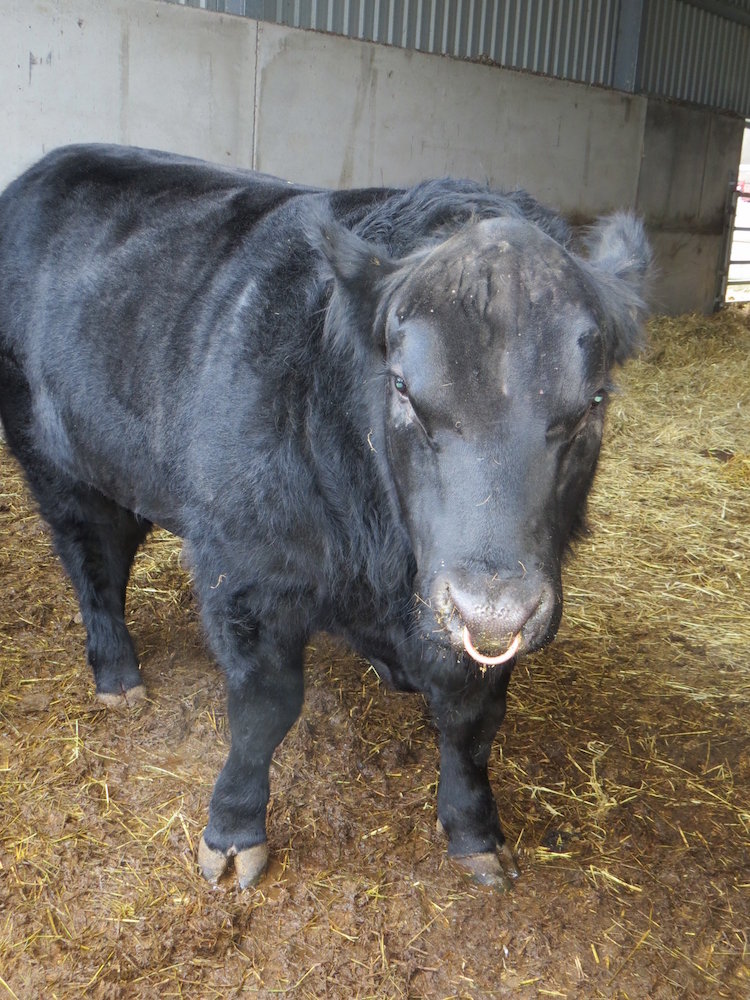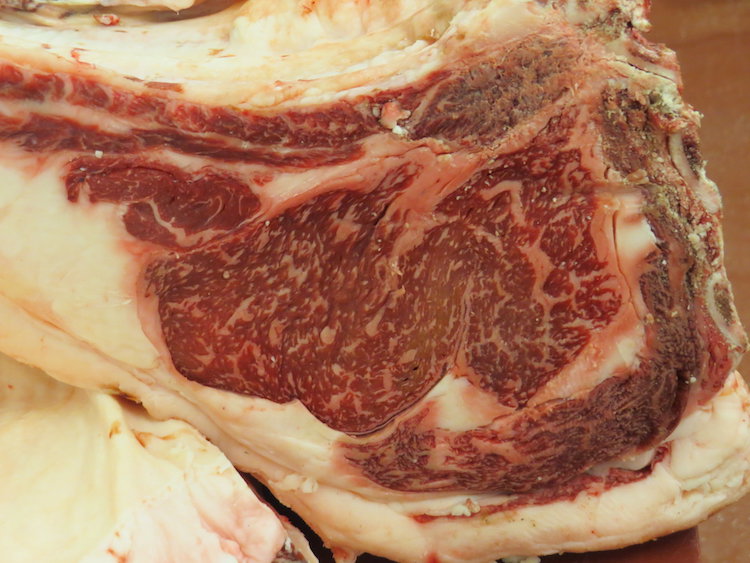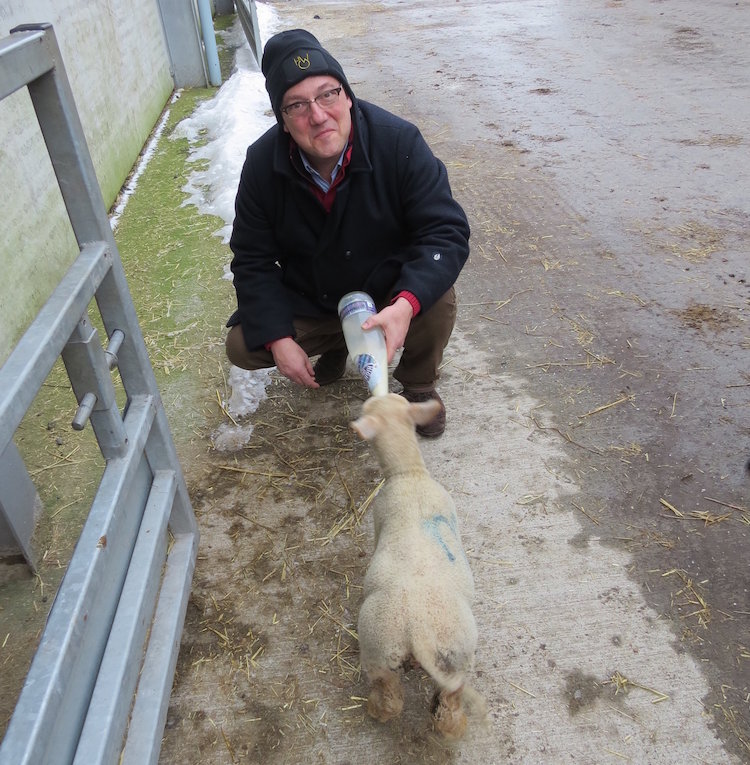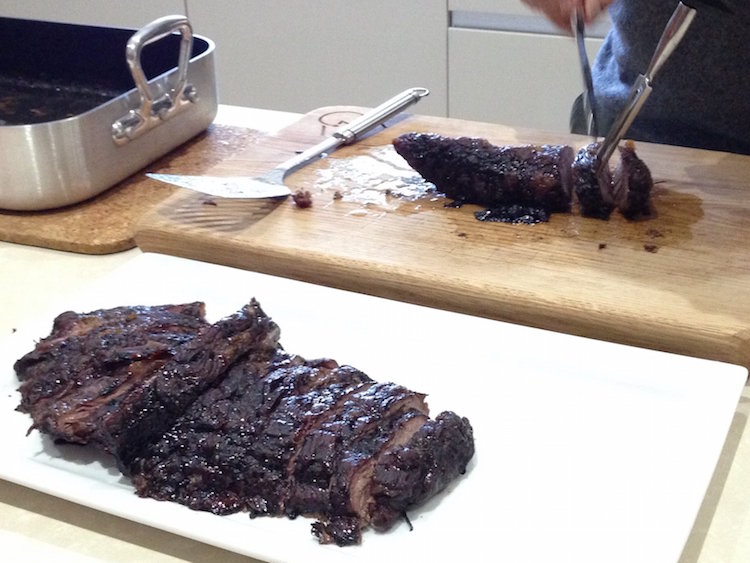
Scotland may have given the world Aberdeen Angus cattle but it’s Scottish-reared Wagyu beef that is currently making the biggest splash in foodie circles.
Originating in the Kobe district of Japan, Wagyu are bred for their meat which is finely marbled with tasty fat.
Animal fat has been rather unfairly demonised in some circles over the last few years. However, beef connoisseurs specifically prize Wagyu for the fine seams of highly flavoured fat which run through top quality Wagyu. These give the meat a pronounced flavour and buttery texture.

These are qualities which command a premium price. £250 a kilo for good quality, non-Japanese, Wagyu sirloin is not unheard of compared to, say, £33 for a kilo of more conventional sirloin from my local butcher. The highest grade Wagyu beef from Kobe can fetch an eye-watering £450 a kilo.
The largest Wagyu herd in the UK is at Blackford Farms in Perthshire. Since 2011, Mohsin Altajir and Martine Chapman have been rearing pure bred Wagyu and cross breed Wagyu in Scotland.
Premier Wagyu producers in Europe
Initially, the pair started breeding Wagyu because they liked the meat and wanted to produce their own. Having started with seven Wagyu cows and two bulls, they now have a herd of some 500 cattle and supply some 50 Michelin-starred restaurants. Their aim is to become the premier Wagyu breeders in Europe.
In Edinburgh, L’escargot Bleu and Blanc sometimes sell dishes using Wagyu meat from Blackford. Earlier this year, the 5pm Dining blog travelled up to Blackford Farms with Fred Berkmiller, chef patron of L’escargot restaurants.
Fred has long been interested in Blackford’s Wagyu and has even compared it to a ‘first kiss’. You know it must be quite something when the normally straight talking Frenchman starts waxing lyrical about first kisses.
A keen advocate of keeping a firm grasp on provenance, Fred likes to buy whole Wagyu carcasses and, occasionally, will go to Campbells Prime Meat in Linlithgow to play a part in butchering the meat.
We’ll have a piece on Fred butchering a Wagyu carcass in next week’s blog.

Meanwhile, down on the farm, Martine explained how they rear their Wagyu. The very best Japanese Wagyu are said to be fed beer and massaged. The Blackford Wagyu are not quite that pampered but they do have a good life.
They are given an organic seaweed supplement in their food to boost mineral levels and give them a shiny coat. Even their grass feed is cut short so it is easy to eat. Over winter, their barn environment is kept very calm and has minimal exposure to machinery.
The cattle are sent to slaughter at a local abattoir at around 27-36 months compared to the eight plus months at which other breeds begin to be sent to the abattoir. The slow maturation allows flavour to develop but also means increased costs for feed.
Tom Kitchin: best beef in UK
And is it worth it? Mohsin cooked up three cuts of Wagyu for us to try: bavette, rump tail and Jacob’s Ladder or short ribs.
They all had a depth of flavour which stood out from normal steak and which lingered. Like an interesting wine they had a good, long finish.
Michelin-starred chef Tom Kitchin calls it the ‘best beef in the UK’ while Nick Nairn reckons that it is ‘genuinely one of the best pieces of beef I have ever eaten’.
‘We don’t spare any expense and we are looking to produce the best beef in the country,’ is Mohsin’s straight forward and ambitious take on the business.

